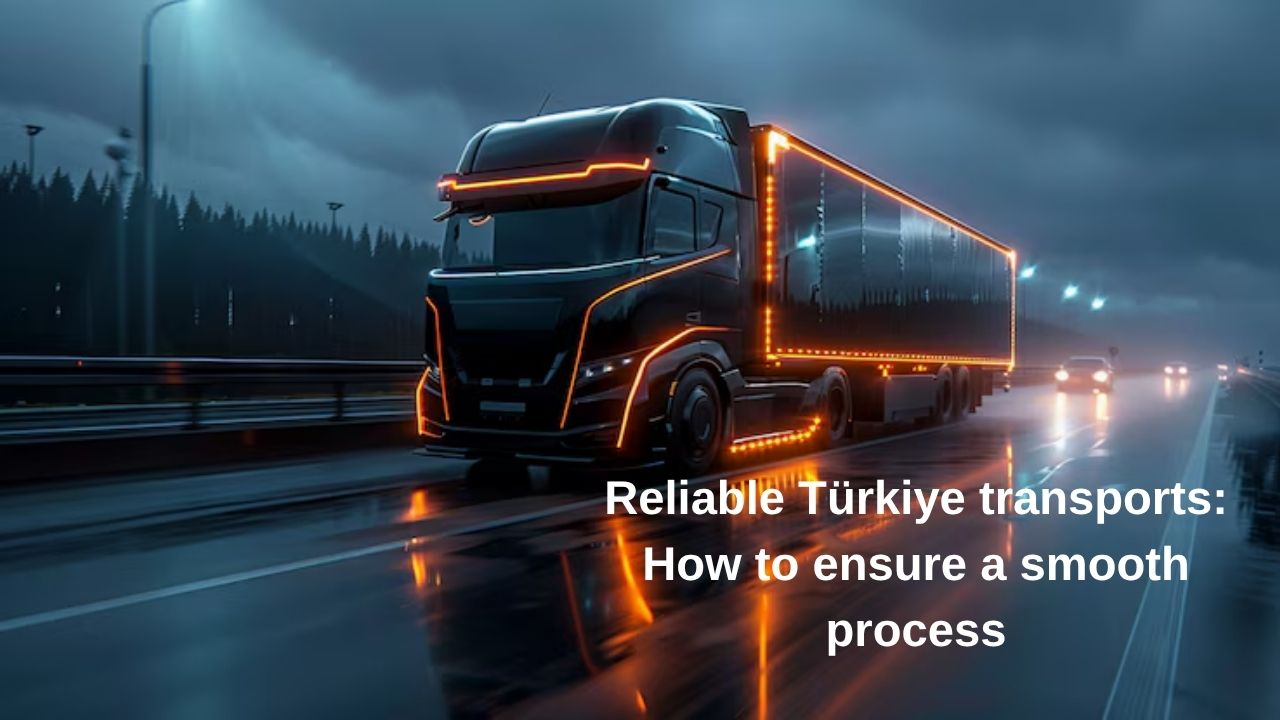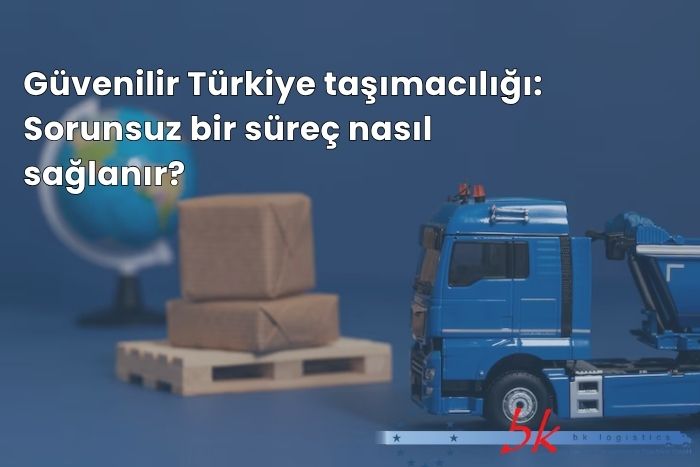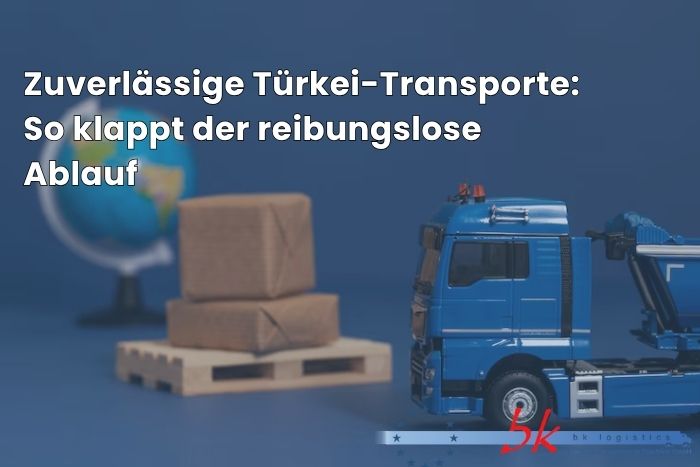News
Reliable Türkiye transports: How to ensure a smooth process
Table of Contents
-
What is Turkey Transportation?
-
Key Elements for Reliable Transportation
-
Customs Clearance and Procedures
-
The Role of Technological Innovations
-
Challenges in Logistics
-
Solutions for a Smooth Process
Turkey transportation refers to logistical activities conducted to or from Turkey, which serves as a bridge between Europe and Asia. In 2025, digitalization, automation, and customs integration have made these processes faster and more reliable. Turkey is one of Germany’s key trade partners, with a bilateral trade volume of 37.6 billion Euros in 2017. This article explores the essential factors for ensuring a smooth Turkey transportation process, technological innovations, and challenges encountered.
Reliable transportation requires meticulous planning, transparency, and a professional logistics partnership. In transportation to or from Turkey, customs clearance and delivery times are particularly critical. Major cities like Istanbul, Ankara, and Izmir are central hubs of logistics networks, enabling rapid deliveries.
What is Turkey Transportation?
Turkey transportation encompasses logistical activities between Turkey and Europe, particularly Germany, conducted via road, sea, air, and rail. Turkey is a significant trade partner of the European Union (EU), engaging in imports and exports across various sectors such as textiles, food, and machinery. For instance, a German company may import automotive parts from Turkey via road transport.
This type of transportation demands flexibility and speed. Road transport enables deliveries within 3 to 5 days, while sea transport is a cost-effective option for larger cargo volumes. Turkey’s geographic location provides a strategic advantage in logistics processes. For example, a logistics hub in Istanbul facilitates swift access to Europe.
Road Transport: Ideal for fast and flexible deliveries.
Sea Transport: Economical for large cargo volumes.
Air Transport: Offers a rapid solution for urgent deliveries.
Rail Transport: An eco-friendly and sustainable alternative.
Key Elements for Reliable Transportation
Reliable Turkey transportation relies on several key elements. First, precise logistics planning is critical. For example, the optimal route and transport method must be selected for a shipment from Turkey to Germany. This shortens delivery times and optimizes costs.
Second, transparency and communication are essential for a smooth process. Customers should be able to track their cargo’s location in real time. A logistics company can use a GPS-based tracking system to provide customers with real-time updates. Additionally, an experienced logistics team reduces the risk of errors in customs clearance and delivery processes.
Planning: The optimal route is determined in advance.
Transparency: Cargo tracking is performed in real time.
Experience: Professional teams accelerate processes.

Customs Clearance and Procedures
Customs clearance is one of the most critical stages in Turkey transportation. Customs procedures must comply with both Turkish and EU customs regulations. For example, when exporting textile products from Turkey to Germany, the correct documents (invoice, packing list, certificate of origin) must be prepared.
In 2025, digital customs systems streamline this process. Digital platforms developed by Turkey’s Ministry of Trade and Customs enable online document processing. However, missing or incorrect documents can cause delays at customs. Therefore, working with an experienced customs broker significantly simplifies the process.
Document Accuracy: Complete documents must be prepared.
Digital Systems: Online processes accelerate procedures.
Expert Support: Customs brokers prevent errors.
The Role of Technological Innovations
Technological innovations enhance efficiency in Turkey transportation. In 2025, Internet of Things (IoT), artificial intelligence, and blockchain technologies are transforming logistics processes. IoT devices, for instance, monitor conditions such as temperature and humidity, ensuring the safety of perishable goods.
Artificial intelligence is utilized for route optimization. A logistics company can analyze traffic and weather data to determine the fastest route. Additionally, blockchain ensures transparency and reliability in customs procedures. For example, the entire journey of a shipment can be recorded on a blockchain to prevent fraud.
IoT: Cargo conditions are monitored in real time.
Artificial Intelligence: Routes are optimized.
Blockchain: Processes are made secure.
Challenges in Logistics
Turkey transportation offers many advantages but faces certain challenges. Customs delays are a common issue, particularly during peak periods. For instance, bottlenecks may occur at customs checkpoints during holiday seasons. Additionally, border crossings can extend delivery times due to bureaucratic hurdles.
Another challenge is logistics costs. Fluctuations in fuel prices and exchange rate changes can impact transportation costs. Furthermore, a shortage of qualified personnel, especially in specialized areas like customs clearance, can create difficulties.
Customs Delays: Waiting times increase during peak periods.
Cost Fluctuations: Fuel and exchange rates affect costs.
Personnel Shortage: Skilled personnel are hard to find.
Solutions for a Smooth Process
Several strategies can be implemented for a smooth Turkey transportation process. First, pre-planning is crucial. For example, required customs documents should be prepared in advance, and digital platforms should be utilized to avoid delays.
Second, investing in technology boosts efficiency. Logistics companies can adopt IoT and artificial intelligence to optimize processes. Additionally, training programs should enhance personnel competencies. For instance, regular training for customs brokers can reduce error risks.
Pre-Planning: Documents are prepared in advance.
Technology Use: Processes are digitalized.
Training: Personnel competencies are strengthened.
Reliable Turkey transportation can be achieved through the right strategies and technologies.



